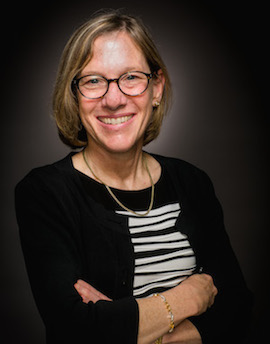 I devote this note to honor the passing of a giant among us, Elie Wiesel, the Andrew W. Mellon Emeritus Professor of the Humanities at Boston University, who died in Manhattan this past Saturday. He was a singular human being and lived a profoundly dignified and meaningful life, bearing witness to atrocity in service of the cause of peace and justice. We are proud to have had him as a member of our faculty, where he was an inspiring presence for nearly forty years. And we join the world in mourning his passing; we will not see his like again.
I devote this note to honor the passing of a giant among us, Elie Wiesel, the Andrew W. Mellon Emeritus Professor of the Humanities at Boston University, who died in Manhattan this past Saturday. He was a singular human being and lived a profoundly dignified and meaningful life, bearing witness to atrocity in service of the cause of peace and justice. We are proud to have had him as a member of our faculty, where he was an inspiring presence for nearly forty years. And we join the world in mourning his passing; we will not see his like again.
Elie Wiesel’s life was profoundly interrupted and forever shaped by the events of March 1944, when his family and Jewish neighbors were rounded up and confined to a ghetto, then in May loaded into cattle cars and sent to Auschwitz. After barely surviving the unspeakable horror of the Holocaust, he found the voice and the moral courage to bear witness in word and deed to the millions who suffered and died at the hands of the Nazis. He then used his voice to speak out about other horrors, to name them human rights violations, while urging universal condemnation and emergency action.
Wiesel attended the Sorbonne and studied philosophy after liberation. He had a keen intelligence that survived his ordeals, which honed a focus on the good and the right. In time he wrote Night, a memoir of his survival in the concentration camps that has become required reading for American students, and then many more books about religion, ethics, and the Holocaust. He became the conscience of the world, speaking up when atrocities occurred anywhere, urging world leaders to react swiftly and ethically.
His teaching at Boston University began in the 1970’s with courses in theology, on literature and memory. As his fame grew, his lectures filled the largest lecture hall on campus and had to be televised live to the many who could not fit into Morse Auditorium. He was, without question, the most famous professor at BU. His name still graces the websites of the departments he served, including Philosophy and Religion, and our Elie Wiesel Center for Jewish Studies memorializes him in its name and with a bust of the great man in its foyer. Our Howard Gotlieb Archive proudly displays his donated works, artifacts, and the Nobel Prize that was bestowed in 1986.
The life and teachings of Elie Wiesel, like that of our other great Nobel Peace Prize winner Martin Luther King, Jr., endow BU with great honor, but also special responsibility. We must live up to their examples of courage in the face of injustice by teaching our students their message of peace, justice, and leadership. They both spoke out against oppression and violence directly to those who could use their power to preserve the status quo or to change it. This speech is never easy nor without difficult consequences. Elie Wiesel did not live an uncontroversial life. As their intellectual heirs, we must also speak truth to power, and teach our students to do so as well. As the faculty of Arts & Science, there is no better place for us to carry this out than by ensuring the place of ethical study in our curriculum and co-curricular programs.
I deeply wish I could say that I personally knew Elie Wiesel. I would have loved the opportunity to speak with him about peace, terrorism, courage, presidential politics, Israel, human rights, humanitarian intervention, and so many other things. I am sorry that he was too ill by last fall to meet this new Boston University dean and philosophy colleague. I am glad to have had the privilege and honor to meet many colleagues and alumni who have memories of his inspiring presence, and I am grateful to hear your stories of this great man and his inspiring message of hope.
Elie Wiesel. May his memory be a blessing.
3 comments
Ann, this is a powerful and beautifully written memorial passage–quite moving on it’s own. Thank you.
Let me add my words to Ann’s beautiful thoughts about our late colleague. I first encountered Elie Wiesel early in college, when I read his then-new book, A Beggar in Jerusalem. I still have that tattered copy, so important to me, which sits on my shelf next to the copy Elie signed and gave to me nearly 45 years later.
I was amazed, when I arrived in Boston, to know I would be working with him, and I treasure that time and those conversations, which ranged so widely from those that were very serious indeed to the ones he punctuated with the special twinkle in his eye.
In the Jewish tradition it is the good acts, the impact of those good acts, and the memories of those that constitute the continuing life, the living legacy of an individual after death. For Elie Wiesel, that is a large living legacy that includes our wonderful Elie Wiesel Center for Jewish Studies.
Indeed, may his memory be for a blessing.
A beautiful written memories! What a brave man Prof. Elie Wiesel was!Let’s make a peaceful world and continue the good acts that Prof. Elie Wiesel had not finished.
May his memory be for a blessing.